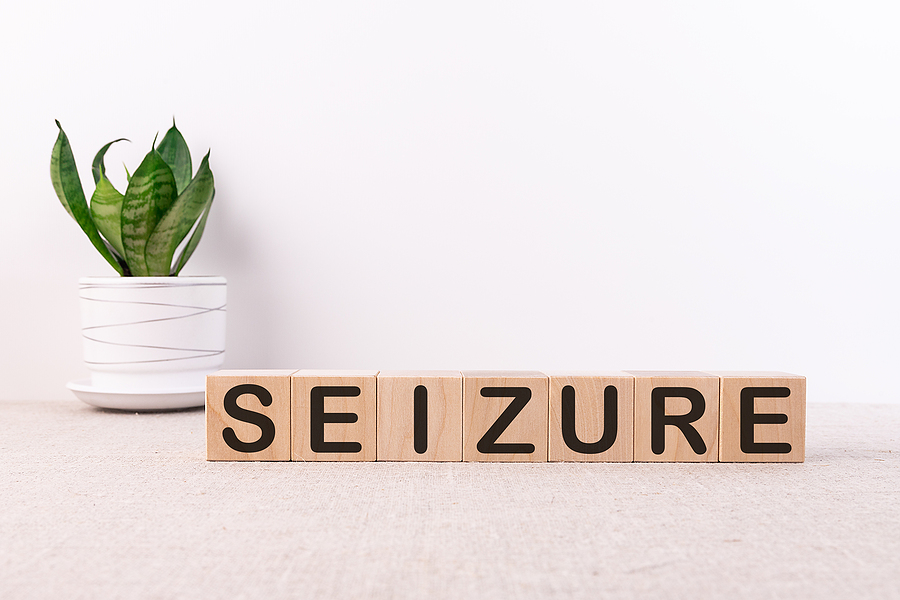Seizures in Seniors: What to Do if an Elderly Person has a Seizure
Category:

The symptoms of seizures can easily be mistaken for other a variety of conditions, from dementia to stroke. Confusion like that can make responding appropriately to a seizure more challenging. This is why it can be so important to learn what to do if an elderly person has a seizure, what to do after a seizure, and what the symptoms of seizures in elderly people might look like. Even learning to take a few simple precautions in the future can literally save lives.
Causes of Seizures in the Elderly
What can cause seizures in elderly individuals? Quite a few things. But what causes seizures in the elderly for the first time is usually epilepsy. Affecting about 3 million people in the US, epilepsy is the most common cause of seizures in the elderly. Since the risk factors for epilepsy include diseases that affect brain function, strokes, and head injuries, people are at a much greater risk of developing the condition with age.
The cause of seizures in elderly patients is usually epilepsy, but it’s worth emphasizing that seizures in seniors can be the result of many things. For example, a non-epileptic seizure can be caused by a physical condition or even stress. And a non-epileptic seizure can result in all of the same symptoms of a generalized epileptic seizure. But what does that look like?
Download a Free Guide to Home Care
Seizures in Elderly People & Types of Seizures
Seizures are essentially an electrical disturbance in the brain; the type of seizure a person experiences will depend on the location of the disturbance. For instance, a generalized seizure involves the entire brain being swarmed with electrical activity. That can lead to convulsions, falls, strange jerking motions, blackouts, wandering, or losing the ability to talk. Even breathing may stop for a few moments.
Other times, the electrical activity is centralized to one area of the brain, which is called a partial seizure. This type is among the most common for seniors with epilepsy. Someone having a complex partial seizure will often appear in a confused state, staring, mumbling, or repeating actions as though they were sleepwalking. Not unlike with dementia, familiar surroundings may seem different. These events can be easy to miss for some time because people don’t remember having partial complex seizures.
A generalized seizure is usually what you usually see portrayed on television, where a person’s body stiffens and starts to jerk in an unusual way. But it’s important to understand seizures in seniors don’t always produce such animated symptoms. Sometimes a person who is having a seizure merely slumps over in their seat, appearing to suddenly fall unconscious.
Seizures in the Elderly Treatment Options
Someone who’s experiencing a seizure may not be able to talk to others but may be able to respond to simple requests. Symptoms of a seizure usually go away within three minutes, though a return to full consciousness can take up to an hour. After a seizure is over, it’s not uncommon for seniors to experience a loss of bladder control, or to sweat profusely.
Treatment options will depend on the cause. It’s often a good idea to test for epilepsy after a seizure, which can involve an EEG, MRI, or CT scan. With an affirmative diagnosis, there are a variety of medications that can be used to manage symptoms. Similarly, treatment for non-epileptic seizures usually involves cognitive behavioral therapy to help heal injuries and reduce stress.
What to do if an Elderly Person has a Seizure
If someone is experiencing a seizure for the first time, you should seek immediate medical attention. If it’s a person with epilepsy who has experienced seizures before and experiences them on a regular basis, their doctor may advise waiting about three minutes before seeking medical attention.
However, seniors with epilepsy shouldn’t take baths without someone to check their safety, a short lapse in consciousness can be lethal. While epilepsy is a completely manageable condition, it can make swimming alone, climbing ladders, and operating heavy machinery very dangerous.
Subscribe
Date: 2020-09-24
Category:


